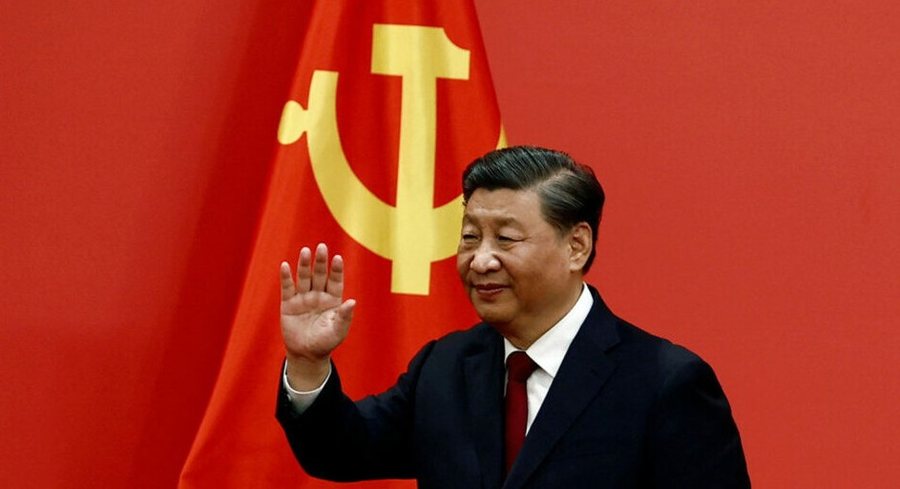
New studies by German institutes point to a sophisticated model of Chinese infiltration in the Western Balkans – through digital espionage, strategic investments and soft loans – with Serbia as its center of gravity. In a region vulnerable to foreign influences and tired of EU delays, Beijing finds favorable terrain to expand its political and economic presence, writes the German newspaper Frankfurter Allgemeine Zeitung.
China is strengthening its influence in Eastern Europe through a mix of digital and economic methods - from cyberattacks to investments and loans on favorable terms, operating more freely in regions where EU standards for transparency are lacking, writes the German newspaper Frankfurter Allgemeine Zeitung.
In the Czech Republic, a cyberattack on the Foreign Ministry by the APT31 group, linked to the Chinese Ministry of State Security, caused alarm. In Bosnia and Herzegovina, the Chinese company Elinc, included in the US sanctions list for links to the Chinese military industry, is taking care of the IT security of 780 public institutions. In Serbia, the police use facial recognition technology from the Chinese company Huawei. Montenegro and North Macedonia have also experimented with similar systems.
According to studies published by the German Marshall Fund, cited by the Frankfurter Allgemeine Zeitung, Huawei is China's main instrument in the field of telecommunications in the Western Balkans, building 5G networks, data centers and projects for "smart cities". Political scientist Arta Hadxixhemajli warns about the company's close ties to the Communist Party of China, and the EU shares this concern: most of its countries do not include Huawei in the construction of their networks due to fears of espionage.
China's direct investment in the EU and Britain reached a record 5.9 billion euros in 2024. However, only 20 percent went to the three main economies (Germany, France, Britain), while the bulk went to Hungary - a Eurosceptic country - which received 31 percent of the investment, writes the Frankfurter Allgemeine Zeitung. The bulk of the investment comes from Chinese car and battery firms: Catl, Geely and Gotion, along with technology companies Tencent and Envision. These five companies account for half of Chinese investment in the EU. Expert Max Zenglein from the Berlin-based Merics institute emphasizes that China is using economic investment as a tool for strategic political influence.
In Eastern Europe, China’s interest in new investments has declined – projects were down 4 percent and capital amounts were down 48 percent compared to last year. However, as investments from other countries have also declined, China’s relative weight has increased, especially in the Western Balkan countries: Serbia, Bosnia, Kosovo, Montenegro, North Macedonia and Albania.
According to the Wiener Institut für Internationale Wirtschaftsvergleiche (WIIW), the Vienna Institute for International Economic Comparisons, China is taking advantage of the EU's lack of transparency rules in tenders, positioning itself as a more flexible alternative to Balkan governments. China's economic influence in the region has grown significantly: from 0.2 percent in 2015 to 4.2 percent of economic power or Gross Domestic Product in 2023. Meanwhile, EU investments have fallen from 40 percent to 34 percent.
Serbia stands out from other countries in terms of the concentration of Chinese capital. 9 percent of Gross Domestic Product (GDP) consists of Chinese “greenfield” projects (built from scratch), while 38 percent comes from the EU. China builds projects that other investors do not touch and benefits from the EU’s neglect. Historically, close ties between Serbia and China date back a long time, and China is trying to expand its economic footprint systematically.
Between 2000 and 2021, China has provided loans worth up to $17 billion to Western Balkan countries, while the EU has provided $25 billion from 2007 to 2023.
The terms of Chinese loans are more flexible, but this comes at a cost: higher interest rates, shorter terms, and a greater risk of corruption. One example is the collapse of the roof of the Novi Sad train station, financed by China - an event that sparked ongoing protests against the regime.
While the EU has provided €13 billion in non-repayable grants to prepare the region for membership, China has provided only €350 million in similar forms. This highlights a significant difference in how the two global powers approach foreign aid.
According to an article in the Frankfurter Allgemeine Zeitung, China is pursuing a sophisticated model of infiltration in the Western Balkans – through digital espionage, strategic investments and soft loans – with Serbia as its center of gravity. In a region vulnerable to foreign influences and tired of EU delays, Beijing finds favorable ground to expand its political and economic presence.
ER (A2 Televizion)











